Persecution of 10 Catholic bishops in China intensified after Vatican-China deal, report says
A new report sheds light on the repression faced by 10 Catholic bishops in China who have resisted the Chinese Communist Party’s attempt to exert control over religious matters since the 2018 China-Vatican agreement on the appointment of bishops.
The report, authored by Nina Shea for the Hudson Institute, documents the harrowing experiences of Vatican-approved bishops who have suffered detention without due process, surveillance, police investigations, and banishments from their dioceses for refusal to submit to the Chinese Patriotic Catholic Association (CPCA), a state-managed group controlled by the CCP’s United Front Work Department.
“This report shows that religious repression of the Catholic Church in China has intensified since the 2018 China-Vatican agreement on the appointment of bishops,” Shea said.
“Beijing targeted these 10 bishops after they opposed the Chinese Patriotic Catholic Association, which requires its members to pledge independence from the Holy See,” she added.
European banks in Russia: Kremlin expects Italy's Unicredit, Austria's Raiffeisen to help launch digital rouble as it signals to block the foreign banks' attempt to sell their local units
Russia expects the local subsidiaries of European banks Raiffeisen Bank International (RBI) and UniCredit to participate in the mass launch of the digital rouble in July 2025 or face potential fines.
Austria's Raiffeisen Bank International (RBI) and Italy's UniCredit are two of Russia's 13 systemically important banks but they are also under pressure from the European Central Bank to cut their exposure to Russia.
Russia has been piloting a digital rouble and plans to begin mass implementation on July 1, 2025. Under the pilot scheme, a select group of individuals and companies has been allowed to open digital wallets and make purchases and transfers with digital roubles. Bank of Russia Governor Elvira Nabiullina said the full rollout next year would be voluntary for individuals, but not for systemically important lenders.
[...]
Meanwhile, the Russian government is signaling that it will block any attempt by lenders including Raiffeisen Bank International AG and UniCredit SpA to sell local units to any buyer that risks being sanctioned, according to people familiar with the matter.
That effectively rules out a Russian buyer, and given the opposition by Western governments to any outside bidder stepping in, makes a sale next to impossible. Abu Dhabi’s Mubadala Investment Co. abandoned a potential purchase of UniCredit’s Russian operations last year on the basis that the US government would oppose it, people familiar with the matter said.
Raiffeisen and UniCredit have been seeking a way out of their entanglement in the country since the invasion of Ukraine over two years ago. The Western banks, two of the largest left with operations in Russia, are seen by the government of President Vladimir Putin as vital conduits for foreign payments, one of the people said.
Desert Dumps (May 2024) -- [Archived]
Europe supports, finances and is directly involved in clandestine operations in North African countries to dump tens of thousands of Black people in the desert or remote areas each year to prevent them from coming to the EU.
[...] Europe knowingly funds, and in some instances is directly involved in systematic racial profiling detention and expulsion of Black communities across at least three North African countries [...] In Morocco, Mauritania and Tunisia, refugees and migrant workers, some of whom were on their way towards Europe, as well as people who had legal status and established livelihoods in these countries, are apprehended based on the colour of their skin, loaded onto buses and driven to the middle of nowhere, often arid desert areas.
How an EU-funded agency is working to keep migrants from reaching Europe (May 2023) -- [Archived]
In 2019, the EU inked a deal to provide nearly 20 million euros’ (about $21.4 million) worth of radar, undersea and airborne drones, radios and other technology, as well as training, to the government of Tunisia [...] Over the past decade, the EU has struck similar deals — exchanging hundreds of millions of euros worth of surveillance technology, other police equipment and accompanying training — with nearly every non-EU country that borders the bloc. At the center of these deals is the International Centre for Migration Policy Development, an innocuous-sounding international organization based in Vienna that has become one of the bloc’s go-to intermediaries for supplying surveillance equipment and training to police and coast guards in countries bordering the EU.
[...] “The EU is breaking its own rules and values with the border regime we have built up: They partner with autocratic regimes and provide them with technology to use in the Mediterranean to keep people out,” said Ozlem Demirel, a member of the European Parliament from Germany. Demirel pointed to the ICMPD as an example of efforts by the European Commission to carry out this work with as little scrutiny as possible.
These are just two investigation by external researchers. I would really be curious to read what the EU found. Did Ms. von der Leyen comment on why the Commission is hiding its findings?
Activist accuses UK's Labour government of “falling behind” its allies in standing up to China over failure to describe Beijing’s crackdown on Uyghurs as genocide
Rahima Mahmut, in exile in the UK, ‘disappointed’ at failure to describe Beijing’s crackdown on minority as genocide
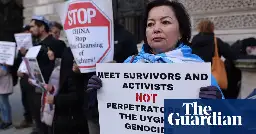
cross-posted from: https://feddit.org/post/4028054
> A leading Uyghur activist has accused the Labour government of “falling behind” its allies in failing to stand up to China, after ministers backtracked on plans to push for formal recognition of the country’s treatment of the minority group as genocide. > > Speaking after David Lammy’s first visit to China as UK foreign secretary, the human rights activist Rahima Mahmut, who has lived in exile in the UK since 2000, said she had hoped there would be a shift in UK policy once the party came into power, including following the US in declaring a continuing genocide in Xinjiang. > > “The Conservative governments all those years [had] big words but very little action,” said Mahmut, who is the UK director of the World Uyghur Congress. She has long campaigned against the crackdown on Uyghurs, which several governments and human rights bodies have described as a genocide. > > “But, sadly, after Labour came into power I didn’t even hear big words,” she added. “I am very, very disappointed, the community is very disappointed.” > > Since 2017, China has swept an estimated 1 million Uyghurs and other minority groups into internment camps, which it called training centres. Hundreds of thousands are believed to still be incarcerated, and in many cases families have no idea about the fate of relatives who had been detained.
Activist accuses UK's Labour government of “falling behind” its allies in standing up to China over failure to describe Beijing’s crackdown on Uyghurs as genocide
Rahima Mahmut, in exile in the UK, ‘disappointed’ at failure to describe Beijing’s crackdown on minority as genocide
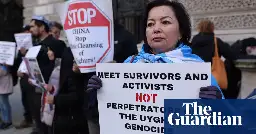
A leading Uyghur activist has accused the Labour government of “falling behind” its allies in failing to stand up to China, after ministers backtracked on plans to push for formal recognition of the country’s treatment of the minority group as genocide.
Speaking after David Lammy’s first visit to China as UK foreign secretary, the human rights activist Rahima Mahmut, who has lived in exile in the UK since 2000, said she had hoped there would be a shift in UK policy once the party came into power, including following the US in declaring a continuing genocide in Xinjiang.
“The Conservative governments all those years [had] big words but very little action,” said Mahmut, who is the UK director of the World Uyghur Congress. She has long campaigned against the crackdown on Uyghurs, which several governments and human rights bodies have described as a genocide.
“But, sadly, after Labour came into power I didn’t even hear big words,” she added. “I am very, very disappointed, the community is very disappointed.”
Since 2017, China has swept an estimated 1 million Uyghurs and other minority groups into internment camps, which it called training centres. Hundreds of thousands are believed to still be incarcerated, and in many cases families have no idea about the fate of relatives who had been detained.
West blasts China on rights, China responds: What about Gaza?
cross-posted from: https://feddit.org/post/4027896
> Australia, the United States and 13 other countries criticized China at the United Nations on Tuesday over alleged human rights abuses in Xinjiang and Tibet, prompting China to denounce them for ignoring the "living hell" in the Gaza Strip. > > Clashes over China's treatment of Uyghurs and other Muslims have become a common occurrence at both the United Nations in New York and the U.N. Human Rights Council in Geneva. > > A U.N. report released two years ago said China's "arbitrary and discriminatory detention" of Uyghurs and other Muslims in its Xinjiang region may constitute crimes against humanity. It said that "serious human rights violations" had been committed. > > "We urge China to uphold the international human-rights obligations that it has voluntarily assumed, and to implement all U.N. recommendations," Australia's U.N. Ambassador James Larsen told the U.N. General Assembly's human rights committee. > > "This includes releasing all individuals arbitrarily detained in both Xinjiang and Tibet, and urgently clarifying the fate and whereabouts of missing family members," Larsen said. > > He spoke on behalf of Australia, the United States, Canada, Denmark, Finland, France, Germany, Iceland, Japan, Lithuania, the Netherlands, New Zealand, Norway, Sweden and Britain. > > Beijing has long denied all allegations of abuse of Uyghurs. China's U.N. Ambassador Fu Cong on Tuesday accused the group of Western states of resorting "to lies to provoke confrontations." > > "The human-rights situation that should gather the most attention at the committee this year is undoubtedly that of Gaza," he said. "Australia and the U.S., among a few others, played down this living hell, while unleashing attacks and smears against the peaceful and tranquil Xinjiang." > > [...]
Finnish energy company Fortum files lawsuit in a Dutch civil court against Russia’s Forward Energo over failed loan repayment
FORTUM CORPORATION PRESS RELEASE 22 OCTOBER 2024 Fortum has initiated legal proceedings before a Dutch civil court against Forward Energo (formerly known as PAO Fortum). The proceedings concern

The lawsuit concerns intercompany loans amounting to some €600 million, which Forward Energo has failed to repay. Most of these loans have reached their maturity date, and no payments have been made. In addition, Forward Energo has defaulted on the interest payments for all the loans, Fortum says in a statement.
The company involved in the lawsuit was formerly owned by Fortum but was placed under temporary management by decree of Russian Leader Vladimir Putin in 2023, transferring it to the Federal Agency for State Property Management. Afterward, the company changed its name to Forward Energo.
Fortum expects the legal proceedings to last several years.
According to the initial loan agreements, disputes between the parties are to be settled in Dutch courts and according to Dutch law.
Finland urges Germany to lose reservations on Ukraine support ahead of talks, deliver long-range missiles to Kyiv
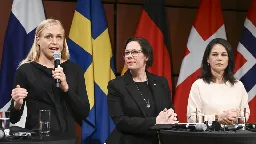
Chancellor Olaf Scholz and Finland’s hawkish President Alexander Stubb will discuss Ukraine’s ‘victory plan’ on Tuesday, as the Finnish foreign minister urged Germany to shed its reservations about weapon deliveries and embrace its "very important role".
Stubb and Foreign Minister Elina Valtonen arrived in Berlin on Monday (21 October).
[...]
Germany has lifted restrictions [removal of restrictions on the use of Western weapons against military targets in Russia] only around the Kharkiv region, while Scholz refuses to deliver missiles of the range for which such removal is primarily relevant.
[...]
Valtonen appeared to respond to Scholz’s reservations before Tuesday’s talks, urging Germany to show military leadership.
“It must be said in Berlin that we hope that Germany will play a very important role [in facing the Russian threat],” Valtonen said in German at a press conference with her Nordic and German counterparts on Tuesday.
“No matter what Russia says, we [must] understand that we aren’t responsible for any escalation because we work within international law,” she said. Valtonen added that those who believe that Russia will let go “if we down our weapons err.”
She thus echoed the position of Germany’s Christian Democratic opposition leader, Friedrich Merz, who has repeatedly pushed Scholz to deliver long-range weapons. Stubb, Valtonen, and Merz belong to the centre-right European People’s Party (EPP), while Scholz is a Social Democrat.
Helsinki has allowed Ukraine to use its weapons against Russian territory in compliance with international law and backs restrictions being lifted.
[...]
[Edit typo.]
Heute beginnt der BRICS-Gipfel in der russischen Stadt Kasan, bei dem sich China und Russland als enge Freunde präsentieren. Doch bei einem Pipeline-Projekt gibt es offenbar einen Interessenskonflikt. Von Benjamin Eyssel.
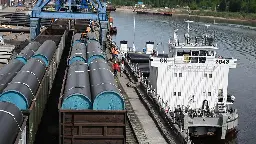
Beim aktuell statffindenden BRICS-Gipfel in der russischen Stadt Kasan, präsentieren sich China und Russland als enge Freunde. Doch bei einem Pipeline-Projekt gibt es offenbar einen Interessenskonflikt.
Als Wladimir Putin Anfang September zum Staatsbesuch in der Mongolei war, machte der russische Machthaber nochmal Werbung für die Pipeline mit dem Namen "Kraft Sibiriens 2". Die Pipeline soll nach dem Willen Russlands russisches Gas durch die Mongolei nach China leiten.
[...]
Zwar gibt es auch in der Mongolei Bedenken gegen das Projekt. Das Land ist bereits heute abhängig von Russland, was Energie angeht. Die Pipeline taucht auch nicht im Programm der mongolischen Regierungskoalition für die nächsten vier Jahre auf. Wahrer Bremser des Projekts sei aber China, so Rajoli Siddharth Jayaprakash von der Observer Research Foundation, einem Thinktank in Neu-Delhi. Die Führung in Peking wolle den Preis drücken.
This is somewhat related:
The report by the Swiss Bankers Association (SBA) and consultants zeb said on Thursday that Swiss policymakers should develop an approach to sanctions that ensures neutral Switzerland remains a safe haven for banks and their customers [..]
Shortly after Russia’s 2022 invasion of Ukraine, Switzerland decided to adopt EU sanctions against Moscow. One measure was to freeze assets belonging to sanctioned Russians.
August Benz, deputy head of the SBA, raised concerns about Switzerland’s rapid adoption of sanctions [...]
According to bankers, Switzerland’s clear stance on the Ukraine war has raised fears among foreign customers that it could support further Western sanctions in the future.
And:
Switzerland praises China-Brazil peace plan for Ukraine
Switzerland says its view on the Chinese plan has significantly changed in recent months Ukraine expresses disappointment in Swiss position
Schweizer Nachrichtendienst: Russland und China bleiben grösste Bedrohung für die Sicherheit, Spionage-Stützpunkte in Botschaften
Das sicherheitspolitische Umfeld der Schweiz verschlechtert sich von Jahr zu Jahr weiter. Die Gruppe eurasischer Autokratien, die vermehrt auch militärisch kooperiert, ist eines der besorgniserregendsten unter den sich derzeit abzeichnenden strategischen Mustern. In diesem Kontext sind die Fähigkeiten der Antizipation und Früherkennung des Nachrichtendienstes des Bundes (NDB) zentral. Der neue Lagebericht «Sicherheit Schweiz» des NDB stellt die wichtigsten Lageentwicklungen aus nachrichtendienstlicher Sicht vor.
Die grösste Bedrohung der Schweiz durch Spionage geht aktuell von mehreren russischen Nachrichtendiensten aus. Die Bedrohung der Schweiz durch die chinesischen Nachrichtendienste ist ebenfalls hoch. Zahlreiche Dienste unterhalten in der Schweiz getarnte Stützpunkte, sogenannte Residenturen. In der Regel werden diese in diplomatischen Vertretungen betrieben.
Der Krieg gegen die Ukraine und die sich weltweit verschärfende machtpolitische Konfrontation haben die hybride Bedrohung auch für die Schweiz erhöht, insbesondere durch russische Beeinflussungsaktivitäten. Im Bereich der Proliferation stellt Russlands Versuch, die westlichen Sanktionen über Privatfirmen in Drittstaaten zu umgehen, für die Schweizer Exportkontrolle bewilligungspflichtiger Dual-use-Güter eine grosse Herausforderung dar.
Espionage: Russia, China pose greatest threat with spy bases operating in embassies, Swiss intelligence report says
The greatest espionage threat to Switzerland currently comes from the Russian intelligence services, the Swiss Federal Intelligence Service’s (FIS) says in its latest report. The threat to Switzerland from the Chinese intelligence services is also high. Numerous services maintain covert bases in Switzerland, known as residencies. These usually operate out of diplomatic missions.
The war against Ukraine and the escalating power political confrontation worldwide have increased the hybrid threat to countries including Switzerland, in particular from Russian influence activities. As far as the issue of proliferation is concerned, Russia's attempt to circumvent Western sanctions via private companies in third countries poses a major challenge to Swiss export controls on dual-use goods subject to licence.
Violent right-wing and left-wing extremist groups are continuing their activities as normal, the report also says. The threat posed by both violent right-wing and violent left-wing extremism has stabilised at a heightened level.
The Reuters report refers to the September data (read my comment on the September data above), and this is practically always lower than the data in August and particularly in July. And the September 2024 data is higher than the Sep 2023 data. As I wrote in my comment, intra-year data fluctuates. The comparison you make doesn't make sense, therefore.
Youth unemployment is rising in the long run, this is what the data shows.
Here is the official release by the Canadian government:
Canada announces tariff remission process for Canadian businesses importing certain Chinese goods
Canadian workers, the auto sector, the steel and aluminum industries, and related critical manufacturing supply chains are threatened by unfair competition from Chinese producers, who benefit from China’s intentional, state-directed policy of overcapacity and oversupply, as well as its lack of rigorous labour and environmental standards. The federal government has recently implemented a suite of tariffs (also known as surtaxes) on certain Chinese imports to level the playing field and protect Canada’s workers and businesses from China’s unfair trade policies. These include:
[...] Today, the federal government launched the process for Canadian businesses to request remission of surtaxes on electric vehicles (EVs) and steel and aluminum imported from China. Remission would also be available for potential surtaxes on critical manufacturing sector products. To ensure that Canadian industry has sufficient time to adjust supply chains, remission will provide relief from the payment of surtaxes, or the refund of surtaxes already paid, under specific and exceptional circumstances.
This is up to you, it is the official Chinese data.
A brief update: Official Chinese youth unemployment rate for September -just released- is now 17.6% (according to the new methodology that does not include university students). It appears to follow the expected development as youth jobless figures in China tend to fluctuate over the year while reaching their peak in the summer (July and August data), when a large number of graduates enter the job market. The September data is a significant increase compared to January as well as year-on-year.
Canada Launches Consultation On Forced Labour Crackdown Amid China Scrutiny
ZeroHedge - On a long enough timeline, the survival rate for everyone drops to zero
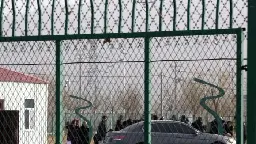
cross-posted from: https://feddit.org/post/4005656
> Canada International Trade Minister Mary Ng announced the public consultation on Oct. 16, saying that it aims to strengthen the enforcement of the ban on importing forced labour goods in alignment with the Canada-United States-Mexico Agreement (CUSMA) and actions taken by allied countries. > > During this public consultation, the government will seek feedback on improving enforcement of the import ban, according to a separate release on Oct. 16. Proposed measures include publishing a list of items at risk of being made with forced labour, based on guidelines from the International Labour Organization (ILO). A “minimum traceability” process was also proposed, requiring importers of these items to provide more information about where their products come from. > > [...] > > Citing an ILO report on modern slavery, Ottawa noted that an estimated 27.6 million people were subjected to forced labour worldwide in 2021, an increase of 3 million since 2016. Children represented about 12 percent of those affected, totalling 3.3 million. > > [...] > > Forced Labour in China > > The announcement comes amid increased scrutiny of forced labour in China. > > [...] > > The issue has also been studied in recent years in parliamentary committees in Canada, with human rights activists urging more action by Canadian lawmakers to curb China’s forced labour practices. > > “The Subcommittee [on International Human Rights] was advised that Canada should adopt a ’reverse‑onus’ policy for companies importing products from Xinjiang, or other parts of China where forced labour is prominent. Such a policy would require importing companies to demonstrate that forced labour was not used in the manufacturing of their products,” reads a March 2021 report published by the subcommittee. > > [...] > > “The Government of Canada expects companies to take every step possible to ensure that their supply chains conform to Canadian law. It is the responsibility of the importer to exercise due diligence to ensure forced labour is not directly or indirectly used in the production of the goods it imports,” CBSA spokesperson Luke Reimer said on Sept. 26. > > One well-known case involved a shipment from China that was intercepted in Quebec in fall 2021, but it was ultimately allowed entry. Reimer said that this decision came after the importer requested a review of the tariff classification. Upon examining the submitted documents, it was determined that the goods did not meet the criteria for seizure related to forced labour. > > Canada has imposed an import ban on goods produced by forced labour since an amendment to the Customs Tariff Act took effect on July 1, 2020. The following year, it also launched an analysis of supply chain risks related to forced labour in China. > > In January, a law aimed at fighting forced labour and child labour in supply chains came into force. Previously known as Bill S-211, this law requires the head of every government institution involved in producing, purchasing, or distributing goods in Canada or elsewhere to submit an annual report to the minister of public safety by May 31 each year.
Canada Launches Consultation On Forced Labour Crackdown Amid China Scrutiny
ZeroHedge - On a long enough timeline, the survival rate for everyone drops to zero
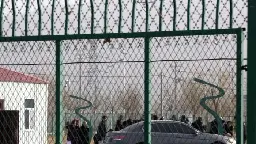
Canada International Trade Minister Mary Ng announced the public consultation on Oct. 16, saying that it aims to strengthen the enforcement of the ban on importing forced labour goods in alignment with the Canada-United States-Mexico Agreement (CUSMA) and actions taken by allied countries.
During this public consultation, the government will seek feedback on improving enforcement of the import ban, according to a separate release on Oct. 16. Proposed measures include publishing a list of items at risk of being made with forced labour, based on guidelines from the International Labour Organization (ILO). A “minimum traceability” process was also proposed, requiring importers of these items to provide more information about where their products come from.
[...]
Citing an ILO report on modern slavery, Ottawa noted that an estimated 27.6 million people were subjected to forced labour worldwide in 2021, an increase of 3 million since 2016. Children represented about 12 percent of those affected, totalling 3.3 million.
[...]
Forced Labour in China
The announcement comes amid increased scrutiny of forced labour in China.
[...]
The issue has also been studied in recent years in parliamentary committees in Canada, with human rights activists urging more action by Canadian lawmakers to curb China’s forced labour practices.
“The Subcommittee [on International Human Rights] was advised that Canada should adopt a ’reverse‑onus’ policy for companies importing products from Xinjiang, or other parts of China where forced labour is prominent. Such a policy would require importing companies to demonstrate that forced labour was not used in the manufacturing of their products,” reads a March 2021 report published by the subcommittee.
[...]
“The Government of Canada expects companies to take every step possible to ensure that their supply chains conform to Canadian law. It is the responsibility of the importer to exercise due diligence to ensure forced labour is not directly or indirectly used in the production of the goods it imports,” CBSA spokesperson Luke Reimer said on Sept. 26.
One well-known case involved a shipment from China that was intercepted in Quebec in fall 2021, but it was ultimately allowed entry. Reimer said that this decision came after the importer requested a review of the tariff classification. Upon examining the submitted documents, it was determined that the goods did not meet the criteria for seizure related to forced labour.
Canada has imposed an import ban on goods produced by forced labour since an amendment to the Customs Tariff Act took effect on July 1, 2020. The following year, it also launched an analysis of supply chain risks related to forced labour in China.
In January, a law aimed at fighting forced labour and child labour in supply chains came into force. Previously known as Bill S-211, this law requires the head of every government institution involved in producing, purchasing, or distributing goods in Canada or elsewhere to submit an annual report to the minister of public safety by May 31 each year.
The story behind the Netherlands' empty prisons
The number of people held in prisons worldwide is growing, but in the Netherlands it's falling. Empty jails have been converted into hotels or cultural centers. So is the Netherlands winning the battle against crime?
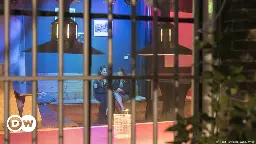
The US, China, Turkey and Brazil are just some of the countries that are putting more and more people behind bars. But in the Netherlands, it's a different story. Some empty prisons there have now been re-purposed as hotels or cultural centers.
[...]
A study conducted by the Universities of Leiden (Netherlands) and Portsmouth (UK)
found that the number of people in prison in the Netherlands fell from 94 per 100,000 citizens to 51 per 100,000 between 2005 and 2016.
Although the downward trend has not continued since, figures from Eurostat
suggest that the imprisonment rate has stabilized at this low level. In 2021 and 2022 it was at 54 per 100,000.
That makes the Netherlands one of the few countries that have seen their prison populations decline. Data platform World Prison Brief (WPB) has identified a similar trend in Germany, Liechtenstein, Bulgaria, the Czech Republic, Romania, and the Baltic states.
[...]
The number of people receiving custodial sentences from the courts has fallen significantly in the Netherlands. In 2005, Dutch courts imposed prison sentences on some 8,305 convicted criminals. Ten years later, only 4,540 offenders were sent to jail. Studies show that the decrease in custodial sentences was seen across the full spectrum of criminal activities.
Crimes against property saw a 44% decrease in prison sentences, violent crime and sexual crime saw imprisonment rates fall by 39%, and for drug-related crimes the drop was as much as 49%. The number of people sent to jail for failing to pay a court-imposed fine decreased by 38%.
The Netherlands also has an unusually low average length of custodial sentence. The criminologists at the University of Leiden noted in their study that half of all those sent to prison there were released again within one month.
By contrast, according to a report by the University of Lausanne that looked at prisoner rates across the 46 members of the Council of Europe, just 5.2% of inmates spend less than six months in jail, and some 21.3% serve between 12 months and three years.
[...]
Another major factor in the Netherlands is the fall in the number people being held in pre-trial detention. The study shows that 21,029 spent time on remand in Dutch prisons in 2005, with that number falling to 13,350 by 2016 — a decrease of 37%.
In the same period — 2005 to 2016 — the number of crimes registered in the Netherlands fell from 1.35 million to 930,000. Crimes against property fell by 216,000 (-27%) and there were 32,000 fewer violent crimes (-26%).
Zhang Zhan ist nach Monaten der Schikane nun schon seit August zu Unrecht inhaftiert.
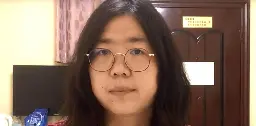
Die Bürgerjournalistin Zhang Zhan ist aktuell in der Haftanstalt von Pudong in Shanghai inhaftiert. Ihr wird vorgeworfen, "Streit angefangen und Ärger provoziert zu haben".
Sie steht seit ihrer Freilassung aus dem Gefängnis am 13. Mai 2024 wegen ihres fortlaufenden Engagements für die Menschenrechte im Visier der Behörden.
Auch ihre Familie ist mit Einschüchterungsversuchen und Drohungen durch die Behörden konfrontiert, und der Rechtsbeistand, den ihre Familie mit ihrem Fall beauftragen wollte, wurde fast acht Stunden von der Polizei festgehalten.
Tens of thousands of pro-EU supporters rally in Georgia ahead of key vote

Saturday's vote will pit an unprecedented alliance of pro-Western opposition forces against the ruling Georgian Dream party, accused by Brussels of shifting towards authoritarianism and derailing EU candidate Tbilisi from its European path.
Tens of thousands of demonstrators, waving EU and Georgian flags and holding banners that read "Georgia chooses the European Union" gathered at Tbilisi's central Freedom Square after marching towards the venue from five different locations
[...]
Pro-Western President Salome Zurabishvili -- at loggerheads with the government -- joined the rally, which she said "shows that Georgia has already won and will reintegrate with Europe".
[...]
Analysts have warned of the risk of turmoil if Georgian Dream attempts to hold onto power regardless of the vote's outcome.
In power since 2012, the party initially pursued a liberal pro-Western policy agenda, but over the last two years has reversed course and been accused of moving closer to Moscow.
Bids for membership of the EU and NATO are enshrined in Georgia's constitution and supported by some 80 percent of the population, according to multiple opinion polls commissioned by groups including the National Democratic Institute and the International Republican Institute.
Youth unemployment in China is getting worse
Youth unemployment in China is getting worse. The Chinese government is calling for a job, but it seems to be rarely resolved.According to China's National Bureau of Statistics on the 21st, the unempl..

cross-posted from: https://feddit.org/post/3997245
> According to China's National Bureau of Statistics on the 21st, the unemployment rate of young people (16-24 years old) reached 18.8% in August. It's the highest it's been this year. This is attributed to the fact that a large number of students who graduated from school in the first half of this year jumped into the job front. > > [...] > > Chinese authorities temporarily suspended the release of monthly figures after youth unemployment hit an all-time high of 21.3% in June last year. Since then, new standards have been applied and announced from this year excluding enrolled students from the statistical target. Nevertheless, the youth unemployment rate, which was 14.6% in January this year, is steadily rising. > > Last month, the story of 24-year-old Lee became a hot topic on Weibo, a Chinese social network service (SNS). After completing a master's degree in physics at the graduate school, it was known that he got a job as a cleaner at a high school in Suzhou, Jiangsu Province. > > [...] > > In fact, many young Chinese people are flocking to gig workers (short-time workers). The number of delivery drivers registered on Meituan, a large delivery platform, jumped from 3.98 million in 2019 to 7.45 million last year. The growth of the delivery market slowed due to the end of the "COVID-19 lockdown" policy, but the number of delivery drivers increased. > > [...] > > Against this backdrop, the Chinese government has recently decided to strengthen its crackdown on slang and newly coined words on the Internet. Some analysts say that they intend to censor terms that criticize the Chinese Communist Party and the government.
Youth unemployment in China is getting worse
Youth unemployment in China is getting worse. The Chinese government is calling for a job, but it seems to be rarely resolved.According to China's National Bureau of Statistics on the 21st, the unempl..

According to China's National Bureau of Statistics on the 21st, the unemployment rate of young people (16-24 years old) reached 18.8% in August. It's the highest it's been this year. This is attributed to the fact that a large number of students who graduated from school in the first half of this year jumped into the job front.
[...]
Chinese authorities temporarily suspended the release of monthly figures after youth unemployment hit an all-time high of 21.3% in June last year. Since then, new standards have been applied and announced from this year excluding enrolled students from the statistical target. Nevertheless, the youth unemployment rate, which was 14.6% in January this year, is steadily rising.
Last month, the story of 24-year-old Lee became a hot topic on Weibo, a Chinese social network service (SNS). After completing a master's degree in physics at the graduate school, it was known that he got a job as a cleaner at a high school in Suzhou, Jiangsu Province.
[...]
In fact, many young Chinese people are flocking to gig workers (short-time workers). The number of delivery drivers registered on Meituan, a large delivery platform, jumped from 3.98 million in 2019 to 7.45 million last year. The growth of the delivery market slowed due to the end of the "COVID-19 lockdown" policy, but the number of delivery drivers increased.
[...]
Against this backdrop, the Chinese government has recently decided to strengthen its crackdown on slang and newly coined words on the Internet. Some analysts say that they intend to censor terms that criticize the Chinese Communist Party and the government.
As an addition to that, the Canadians have different view:
Protecting Canadian workers: CLC welcomes tariffs on Chinese imports -- (Archived)
Canada’s unions are pleased with the government’s announcement to impose tariffs on Chinese imports, including a 100% tariff on electric vehicles and a 25% tariff on aluminum and steel, matching recent U.S. actions. Coming into force on October 22, this marks one of the most significant shifts in our supply chain in decades and it’s a necessary step in protecting Canada’s economy, our workers, and the investments we’ve already made in the electric vehicle (EV) industry.
I wrote, "Chinese companies have been focusing on their bottom line very much as companies elsewhere. They can rely on an ongoing stream of cheap labour, and, therefore, extremely low operating costs, as workers have no rights."
What has that to do with the EU?
At least 8 foreign states monitoring, intimidating diaspora living in the Netherlands, the Dutch counterterrorism office warns
Foreign nationals and Dutch citizens with a family heritage from at least eight different countries often face intense pressure to show loyalty to foreign governments, carry out espionage activities on their behalf, or to monitor those in their communities, Dutch counterterrorism office NCTV and int...

cross-posted from: https://feddit.org/post/3971767
> Foreign nationals and Dutch citizens with a family heritage from at least eight different countries often face intense pressure to show loyalty to foreign governments, carry out espionage activities on their behalf, or to monitor those in their communities, Dutch counterterrorism office NCTV and intelligence service AIVD warns. > > > The AIVD said it confirmed that Iran, Morocco, Pakistan, Turkey and others specifically attempt to gather intelligence on their diaspora communities in the Netherlands, and there is a strong suspicion that China, Eritrea and Syria does the same. > > Further, people in the Netherlands identified as dissidents by Russia, China and Iran have also been secretly monitored by those governments. The report cautioned that people with heritage and connections to the eight countries mentioned, and others not mentioned, can face intimidation, threats of kidnapping and murder, in addition to others spying on them. > > “These forms of state interference not only put pressure on the personal freedoms of residents of the Netherlands, but also undermine the democratic legal order in the Netherlands,” the NCTV said. Its report about foreign state interference in diaspora communities noted that that this can attempt to “influence political decisions or sentiment in Dutch society.” > > The report noted a wide range of attempts to either monitor or influence foreign residents of the Netherlands, and Dutch citizens with familial ties to other countries. This includes identifying those who might be able to be used to influence those communities, while also observing those who might become supporters of an opposition movement. > > [...] > > That intelligence can then be used to either repress people and their families, or manipulate them into carrying out economic espionage in the Netherlands. The two agencies again raised warnings about the China Scholarship Council, which helps Chinese students get grants to study abroad in exchange for loyalty pledges, and a promise to obey directives from Chinese embassies and consulates. > > The NCTV and AIVD also noted China’s treatment of Uyghurs living in the Netherlands. The ethnic minority has been subjected to years of harassment, unjust imprisonment, and discrimination in China. > > Once [Chinese citizens are] in the Netherlands, they can find themselves on the receiving end of phone calls about family members who are “under the control” of Chinese authorities. “This message is usually accompanied by a clear ‘request’ to stop certain activities, such as publishing critical publications, or participating in or organising demonstrations, or to cooperate with the Chinese authorities,” the NCTV and AIVD stated. > > It also noted reports about incidents of harassment that Russian scientists and students have had to endure. “The callers claimed to be from the Russian government and asked them where their loyalty lay in the war with Ukraine. The AIVD confirmed the practices after the reported incidents and made a direct connection with the Russian invasion of Ukraine,” the report said. > > [...]
New Delhi, October 20 (IANS) The fields of history and archaeology, while fundamentally objective in their pursuit of knowledge about the past, are frequently co-opted to serve nationalistic narratives that legitimise coercive territorial claims. This is
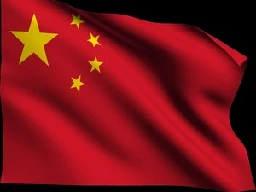
The fields of history and archaeology, while fundamentally objective in their pursuit of knowledge about the past, are frequently co-opted to serve nationalistic narratives that legitimise coercive territorial claims. This is evident in China's strategic use of archaeology to assert ancient ownership over regions like Xinjiang and Tibet, which are currently seeking greater autonomy.
]...]
A recent instance of this archaeological manipulation is the discovery of an ancient Buddhist stupa near Kashgar, an oasis city in Xinjiang, which the government has promoted as evidence of the region's historical ties to China.
[...]
Excavation of this site commenced in 2019, leading to the recovery of two earthen pillars, fragments of a Buddha statue, stone tools, and copper coins. The structure's conical shape has earned it the local Uyghur designation 'Mo'er', which translates to 'chimney'.
Estimated to have been constructed approximately 1,700 years ago, the stupa and its accompanying temple are being appropriated by Chinese authorities to claim the region's unique historical narrative.
[...]
According to Chinese historians, the 'Mo'er' was commissioned by Wu Zetian, a 7th-century Empress of the Tang dynasty known for her promotion of Buddhism. Furthermore, Chinese officials and state media assert that artifacts discovered at this site resemble those found in predominantly Han areas of eastern China.
They also contend that portions of the temple exhibit 'Han-Buddhist' architectural styles and that it was visited by the 7th-century monk Xuanzang from central China, who is credited with disseminating Buddhism throughout the Chinese empire.
[...]
Chinese human rights abuses in Xinjiang have garnered significant international scrutiny in recent years.
[...]
The Chinese Communist Party (CCP) has also engaged in a broader narrative campaign, disseminating myths to justify its claims over Xinjiang.
This has included the destruction of mosques, renaming Uyghur villages, and distorting archaeological findings and historical narratives to erase the distinct identity of the Uyghur people.
Russland greift Europas Staaten permanent mit hybriden Mitteln an, erklärt Sönke Marahrens, Experte für hybride Kriegsführung. Parallel plane der Kreml, diese Vorbereitungen zur Destabilisierung des Westens auch militärisch "abschließen" zu können.

Russland greift Europas Staaten permanent mit hybriden Mitteln an, erklärt Sönke Marahrens, Experte für hybride Kriegsführung. Parallel plane der Kreml, diese Vorbereitungen zur Destabilisierung des Westens auch militärisch "abschließen" zu können.
Sönke Marahrens: Russland ist stark gebunden in der Ukraine und arbeitet mit hybriden Mitteln in den europäischen Ländern, um die Unterstützung für die Ukraine an der Front zu verringern.
[...]
Parallel dazu hat Russland ein Interesse, dass Europa nicht stark ist. Deswegen werden derzeit sowohl die Institutionen NATO und EU, aber auch europäische Staaten permanent mit hybriden Maßnahmen angegriffen.
[...]
Russische Operateure probieren in vielen europäischen Staaten sehr unterschiedliche Dinge aus, die individuell auf den jeweiligen Staat zugeschnitten sind: Hybride Maßnahmen, die in Polen wirken, wirken nicht in Deutschland; was in Deutschland wirkt, würde nicht in Finnland wirken.
[...]
Hier geht es darum, den Staat in seiner Handlungsfähigkeit einzuschränken, aber auch das Vertrauen der Bevölkerung in den jeweiligen Staat zu senken.
[...]
[Dazu kommen] Sabotageakte auf kritische Infrastrukturen, Cyberangriffe, Ransomware-Attacken. Damit kann die Wirtschaftskraft von Staaten geschwächt und auch Unsicherheit erzeugt werden.
Die letzte Gruppe ist die Bevölkerung. Da unterstützt Russland in der öffentlichen Debatte einander konträre Positionen. Das führt zu einer Radikalisierung - und irgendwann auch zu aggressiven Vorfällen.
[...]
In Deutschland sehen wir etwa, dass Russland bestimmte Parteien mit Geld unterstützt und Ähnliches, um hier in die politische Meinungsbildung einzugreifen [...] Aber die gefährlichste Art der hybriden Kriegsführung ist Desinformation. Dadurch können Meinungen gebildet und Narrative gesetzt werden. Antisemitismus oder extreme politische Ideen können befeuert werden.
[...]
Wir benötigen [um gegen Desinformation zu arbeiten] eine grundlegende Befähigung, mit Informationen umzugehen, insbesondere in den sozialen Medien. Da gibt es verschiedene Initiativen, Bürger und Bürgerinnen, insbesondere Jugendliche zu informieren und zu befähigen, Falschinformation, Desinformation, aber auch Informationen, die in einem falschen Kontext gesendet werden, als solche zu identifizieren.
[...]
Cybersicherheit etwa ist kein Zustand, den sie erreichen können, sondern eine sich permanent dynamisch verändernde Lage. Was man heute abwehren konnte, wird morgen mit einer anderen Maßnahme erneut probiert. Und darauf muss man sich vorbereiten. Sie müssen sehr viel auf Flexibilität setzen.
[...]
Da ist eine große Herausforderung [unsere physische Infrastruktur zu schützen]. [...] Auch hier geht es darum, sich für Auffälligkeiten zu sensibilisieren. Und in der Politik gibt es zurzeit die Diskussion darüber, was als kritische Infrastruktur definiert wird. Wie schützen wir das? Aber auch: Sollten solche kritischen Infrastrukturen ausfallen, welche Pläne haben wir dann in den Kommunen und in Firmen? Wir sind in Deutschland auf einem positiven Weg, wir haben das Problem erkannt.
Nur haben wir einen Gegner, den unsere ethischen Grenzen nicht interessieren und der in allen Bereichen unterwegs ist, dies schließt selbst die Ermordung von Regimegegnern in unseren Ländern mit ein.
[...]
Der Plan ist [Russlands ist es], hybride Operationen auch mit militärischen Mitteln abschließen zu können, wie sie das nennen. [...] Schauen Sie sich an, wie die baltischen Staaten ihre Verteidigung aufbauen, wo wir ja mit einer Brigade in Litauen unterstützen. Dort versucht Russland, eine Schwachstelle im europäischen System zu finden, um dort Tatsachen zu schaffen, die Europa destabilisieren würden.
[...]
Man hat ja auch schon [physische Infrastruktur] zerstört, vergangenes Jahr, als ein chinesisches Schiff mit dem Anker runter 200 Meilen rückwärts gefahren ist, um zu zeigen: Wir wissen, wo Schwachpunkte sind und wir gucken uns das ganz genau an. Es ist sogenanntes Signalling. Aber natürlich wissen sie damit auch, wo sie später einmal angreifen könnten.
[...]
Russland bezweckt [mit dieser hybriden Kriegsführung], dass in westlichen Staaten der Blick sich weg vom Krieg in der Ukraine nach innen richtet. Dass diese sagen, wir müssen jetzt Ressourcen dafür einsetzen, dass wir unsere kritische Infrastruktur schützen - sodass wir dann weniger Möglichkeiten haben, die wir der Ukraine zur Verfügung stellen können [...] Aber sowas kann auch zurückfeuern [...] Das sieht man in den baltischen Staaten, aber auch in Schweden und Finnland. Als man anfing, Russland als Bedrohung wahrzunehmen, hat die Bevölkerung ja die Regierung unterstützt und gesagt: Wir wollen der NATO beitreten, wir wollen unsere Freiheit behalten - und hat damit das Gegenteil davon getan, was man sich auf der anderen Seite erhofft hat.
Interesting BBC article. At the end, it says:
A BBC producer [at a polling station] heard a woman who had just dropped her ballot in the transparent box ask an election monitor where she would get paid.
Outside, we asked directly whether she had been offered cash to vote and she admitted it without qualms. She was angry that a man who had sent her to the polling station was no longer answering her calls. “He tricked me!” she said.
She would not reply when asked who she had voted for.
Addition: BBC finds evidence of vote-buying in Moldova [video, 1 min.]
EU urges China to uphold its obligations under international and national law over 'dire' human rights situation in Tibet, Xinjiang, Hong Kong
UNITED NATIONS HUMAN RIGHTS COUNCIL 57th session Item 4 General debate on human rights situations that require the Council’s attention EU Statement Mister President, I have the honour to speak on behalf of the European Union. The candidate countries North Macedonia, Montenegro and Albania*, the EFTA...
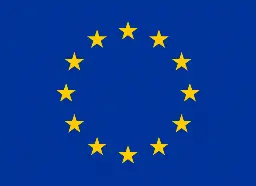
cross-posted from: https://feddit.org/post/3973139
> Archived link > > In a comprehensive statement delivered during the 57th session of the United Nations Human Rights Council, the European Union (EU) reiterated its concerns about the continuous dire human rights situation in several countries around the globe, including regions under Chinese influence, namely Tibet, Xinjiang, and Hong Kong. > > Especially for Xinjiang, the EU condemns political re-education camps, mass arbitrary detentions, widespread surveillance, tracking and control measures, systemic and severe restrictions on the exercise of fundamental freedoms, including freedom of religion or belief, as well as the non-transparent use of the death penalty, the use of forced labour and labour transfer schemes, torture, forced abortion and sterilization, birth control and family separation policies, and sexual and gender-based violence, a statement reads. > > The human rights situation in Tibet continues to be dire. Indicators of this include obligatory boarding schooling and DNA sampling, as reported by civil society organisations. The EU will closely monitor the preservation of the fundamental freedoms, cultural heritage and identity of Tibetans and calls on China to ensure full bilingual education both in Tibetan and Chinese at all levels of the schooling system. Cases of closure of schools teaching in Tibetan language are a worrying development. The EU also encourages China to allow more visits from the international community, UN Special Procedures Mandate Holders and civil society organisations to Tibet. Human rights defenders, lawyers, journalists, other media workers, academics, writers and intellectuals among others continue to be exposed to harassment, intimidation and surveillance, including at transnational level. > > The EU criticizes the sentencing and enforced disappearance including via Residential Surveillance in a Designated Location (RSDL) that could amount to torture and ill-treatment. The EU urges China to introduce a moratorium on the death penalty, adopt rigorous procedures for reviewing capital sentences and reporting death penalty cases. China must also respect the principle of non-refoulement and refrain from extraterritorial activities (including coercion) that are not in line with international law. > > The EU also says that in Hong Kong, the repressive use of the China-imposed National Security Law continues to undermine human rights and fundamental freedoms. The broad and vague definition of certain provisions in the new national security legislation adopted in March 2024 and the first arrests under the new legislation add to these concerns. The legislation exacerbates the erosion of fundamental freedoms and political pluralism in the Special Administrative Region. Of particular concern is its extraterritorial application, including the decision to issue arrest warrants for 13 individuals living outside Hong Kong. The sweeping changes in the electoral system have eroded democratic principles and political pluralism. > > The EU is following with great concern the national security trials of politicians, media practitioners and pro-democracy advocates, including Jimmy Lai and Chow Hang-tung, and is very concerned about the guilty verdict against them. > > The EU urges the Chinese government and the Hong Kong authorities to restore full respect for the rule of law, fundamental freedoms, and democratic principles, and to preserve Hong Kong’s high degree of autonomy under the ‘one country, two systems’ principle, in compliance with Hong Kong’s Basic Law and China’s domestic and international obligations.
Chinese companies have been focusing on their bottom line very much as companies elsewhere. They can rely on an ongoing stream of cheap labour, and, therefore, extremely low operating costs, as workers have no rights whatsoever.
I am wondering what the European automobile workers say about the slave-like working conditions of their peers in Xinjiang? The low prices of Chinese EVs are to a large extent possible because of such cheap forced labour, we must not forget that.
Das umstrittene Projekt Worldcoin ändert seinen Namen und will sich fortan darauf konzentrieren, Menschen in Zeiten von KI bei der Autentifizierung zu helfen.
Ist das eine echte Nachricht oder vom Postillon? :-)
The aggressor in this war is Russia that invaded Ukraine without any reason. This whataboutism is absolutely repugnant.
[Edit typo.]
UK: David Lammy must use China visit to challenge Beijing’s brutal suppression of human rights
‘The Government should ensure that talks on trade and security relations with China aren’t pursued at the expense of human rights’- Sacha Deshmukh, Amnesty International UK’s Chief Executive.
“Behind closed doors but also in public, David Lammy needs to tackle the Chinese government over its systematic, industrial-scale repression of ethnic minorities in Xinjiang and Tibet, its widespread imprisonment of peaceful activists and its completely unacceptable intimidation of students and campaigners here in the UK.
The Chinese authorities routinely target peaceful critics via pervasive online censorship, arbitrary arrest, detention and torture. Human rights defenders, pro-democracy activists and religious leaders and practitioners have been among those subjected to systematic persecution. The widespread repression of ethnic minorities in Xinjiang and Tibet has continued despite significant international criticism.
In Hong Kong, journalists, broadcasters and book publishers have been among those prosecuted and imprisoned under the territory’s notorious National Security Law and other repressive legislation, while civil society organisations both in Hong Kong and abroad have faced criminal charges or harassment for their legitimate activities. The long arm of Chinese state repression has meant that Chinese and Hong Kong communities in the UK, other parts of Europe and North America have all suffered various kinds of threats and intimidation, part of a sinister pattern of “transnational repression”.
Nothing new that China supports Russia and that the West is trying to leverage this against China because of economic and political competition. Yeah, it’s not about justice or anything like that, it’s just Western interests. Nothing else.
No one in Europe has any 'interests' in the war in Ukraine nor in any other war. This comment is disgusting.
Das läuft in allen Staaten so ...
Don't worry, we read a lot and have a lot of perspectives here from everywhere in many languages.
Which sources are reliable for China news in general?
This is somewhat on topic:
Switzerland Won’t Implement the EU’s Russia Sanctions on Subsidiaries
Switzerland has decided not to fully implement the latest package of European Union sanctions against Russia, saying Swiss law already allows measures to prosecute subsidiaries of companies based in the country.
Chinese cars are cheaper because the makers get heavily subsidised
Yes, and don't forget forced labour, there are slave-like working conditions across the supply chain as there is no transparency.